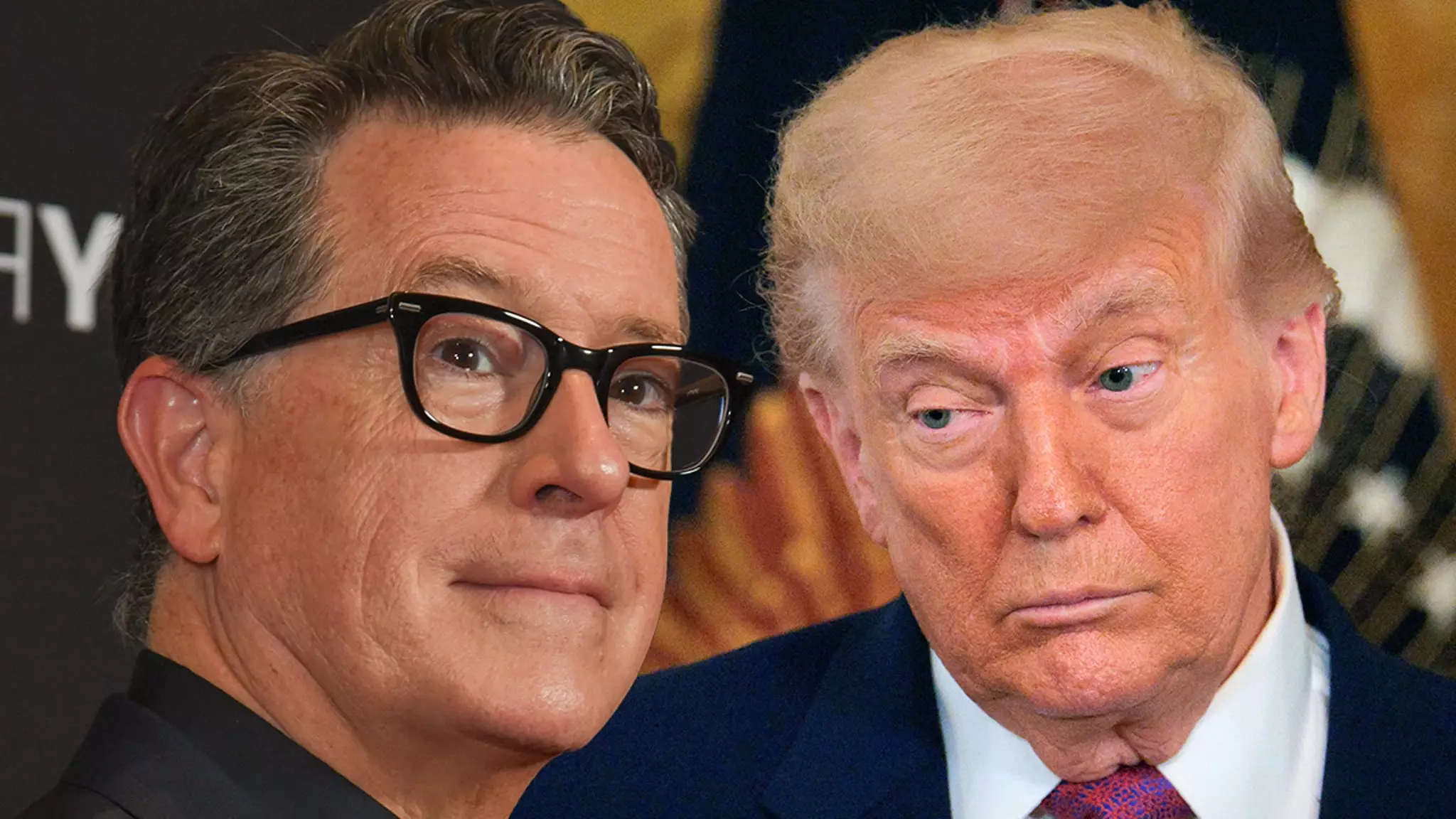In an era where political correctness often mutes boldness, Stephen Colbert’s recent fiery outburst exemplifies the potent impact of unvarnished truth-telling. His explicit tirade against Donald Trump illustrates a daring refusal to toe the line of polite discourse, especially in a landscape saturated with cautious commentary. Colbert’s unrestrained language, including an unapologetic curse, signals a shift towards using raw honesty as a form of activism—an act that challenges the complacency of both media outlets and viewers who crave authenticity. This approach underscores a fundamental belief that confronting power head-on, even with provocative language, can galvanize audiences and reshape the discourse surrounding political figures.
Such bluntness is not just a moment of emotional release but a strategic assertion of moral clarity. Colbert dismisses the pretenses of diplomacy in favor of exposing what he perceives as the true nature of Trump’s influence and the systemic U.S. political machinery that enables it. This aggressive stance forces viewers to reconsider the boundaries of acceptable criticism and pushes the boundaries of late-night television as a platform for honest, fearless commentary. While some might argue that this stream of raw honesty veers into offensive territory, it undeniably reestablishes the power that comedian-turned-commentator can wield when they refuse to be silenced.
The Broader Implications of Confrontational Politics in Media
Colbert’s declaration extends beyond personal commentary—it taps into a larger cultural shift where entertainment figures see themselves as moral watchdogs. His statement that he can now “speak unvarnished truth” signals a defiance of corporate or institutional restraint. In the same breath, he critiques CBS and Paramount Global, framing their previous responses and settlements as symbols of capitulation rather than principled standpoints. His characterization of the network’s explanation for canceling “The Late Show” as a smokescreen exposes a view that commercial interests often undermine honest journalism and candid satire.
This candidness fuels a narrative that institutions—whether media conglomerates or political entities—are more interested in self-preservation than integrity. When Colbert calls CBS’s claimed financial motives a “big, fat bribe,” he elevates the conversation into a moral battle over whether media institutions are driven by profiteering or principled reporting. His critique resonates because it embodies a refusal to accept the superficial Justifications often proffered by powerful entities, inspiring viewers to view media decisions through a lens of transparency and moral integrity.
The Risks and Rewards of Speaking Out in a Fragmented Media Era
While Colbert’s incendiary rant might rally supporters who value honesty and directness, it also risks alienating those who prefer nuanced discussion or are wary of such blunt confrontation. The media landscape is fragmented, with some praising his audacity and others viewing it as reckless. The mixed reactions—from admiration by colleagues and fans to accusations of arrogance—highlight the complex dance between truth and diplomacy in contemporary media.
Notably, critics like Dave Portnoy attack Colbert’s approach by framing it as arrogance, suggesting that his bluntness is more self-serving than socially responsible. This critique hints at a deeper tension: Can pure honesty sometimes come across as arrogant, especially when wielded by those with a public platform? It raises the critical question of whether confrontational speech genuinely fosters progress or merely fuels division.
Despite these risks, Colbert’s stance exemplifies a broader trend—the assertion that outspoken commentators can serve as catalysts for societal change. His willingness to go beyond diplomatic boundaries demonstrates that, sometimes, the power of words—particularly incendiary ones—can pierce through the layers of corporate censorship and apathy. It’s a reminder that for many, honest critique, even when uncomfortable or provocative, is an essential ingredient in holding those in power accountable.
Challenging the System to Foster Genuine Change
Ultimately, Colbert’s unapologetic confrontation offers a lesson in the importance of bravery in public discourse. While some may see his language as over the top, it’s difficult to deny the underlying truth: confronting entrenched power requires a boldness that often pushes against societal comfort zones. His stance signals a willingness to face backlash, knowing that change often starts with discomfort.
In a climate where institutions heavily rely on silence or symbolic gestures, Colbert’s approach exemplifies the kind of fearless honesty necessary to push boundaries and demand accountability. Whether or not one agrees with his methods, the core message remains clear: sometimes, you have to be willing to say what others are afraid to—even if it means offending sensibilities or risking professional fallout. This kind of unwavering stance might just be what’s needed to ignite meaningful conversations and push societies toward genuine reform.

